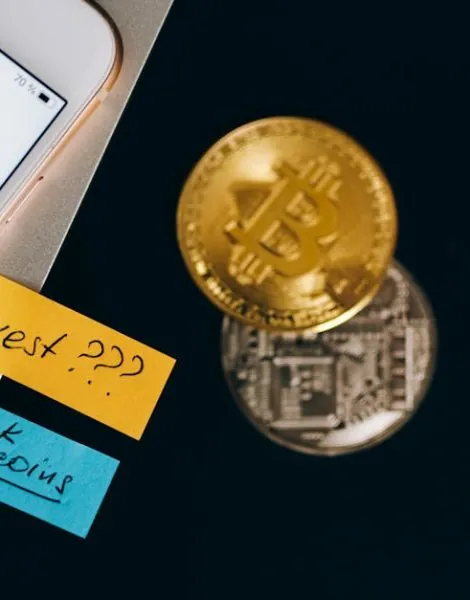In a world where digital trust is as rare as a unicorn sighting, blockchain integrity checks swoop in like a superhero in a cape. These checks ensure that the data on the blockchain remains as reliable as your grandma’s secret cookie recipe. With the rise of cyber threats and data tampering, it’s more important than ever to keep a watchful eye on the integrity of our digital transactions.
Table of Contents
ToggleUnderstanding Blockchain Integrity Checks
Blockchain integrity checks ensure the reliability of data within blockchain systems. These checks form a critical line of defense against cyber threats and data alteration.
What Are Blockchain Integrity Checks?
Blockchain integrity checks refer to mechanisms verifying the accuracy and consistency of data stored on the blockchain. They utilize cryptographic algorithms to create hashes of transaction data. Each block contains a unique hash alongside the hash of the previous block, forming a chain. To maintain integrity, any change in a block alters its hash, signaling tampering. Verification processes involve ensuring that hashes match corresponding data, establishing trustworthiness.
Importance of Blockchain Integrity Checks
Integrity checks hold significant importance for establishing trust in digital environments. They protect sensitive information from unauthorized access or alterations. By ensuring data remains consistent, businesses enhance transaction security, fostering confidence among users. Industries relying on digital transactions, such as finance and healthcare, benefit from robust integrity checks. High-profile breaches highlight the consequences of data tampering, making these checks essential for compliance, security, and user trust.
Types of Integrity Checks in Blockchain
Integrity checks in blockchain consist of various mechanisms that ensure data accuracy and reliability. Understanding these types can help in grasping how blockchain technology maintains its secure framework.
Cryptographic Hash Functions
Cryptographic hash functions play a vital role in maintaining blockchain integrity. They generate a fixed-length string from input data, compressing large amounts of information into unique hashes. A minor change in transaction data leads to a completely different hash output. This feature enables swift detection of tampering, ensuring any altered block is easily identified. Common hash functions, like SHA-256, are employed to create secure links between blocks. These functions facilitate the creation of a tamper-evident structure, reinforcing trust in digital transactions.
Consensus Algorithms
Consensus algorithms determine how nodes in a blockchain network agree on the validity of transactions. They ensure all copies of the blockchain remain consistent across networks. Proof of Work and Proof of Stake are popular examples of these algorithms. Each algorithm has its strengths in securing the network against fraudulent activities. For instance, Proof of Work requires computational power, discouraging malicious behavior through resource demands. Meanwhile, Proof of Stake allows participants to validate transactions based on their ownership, promoting a different type of security. Both methods enhance the trustworthiness of blockchain systems, crucial for industries reliant on secure transactions.
Mechanisms of Blockchain Integrity Checks
Blockchain integrity checks utilize various mechanisms to maintain data accuracy and security. These processes ensure that information within the blockchain is reliable and tamper-proof.
Data Verification Processes
Data verification processes play a crucial role in upholding the integrity of blockchain systems. Cryptographic hash functions generate unique hash values for transaction data, allowing for immediate detection of any alterations. Each transaction is linked to the previous one, forming a secure chain. Any modification in a block alters its hash value, indicating potential manipulation. Thus, this method of verification confirms that all data remains consistent and trustworthy. Implementing robust algorithms helps maintain the overall reliability of digital records across various sectors, including finance and healthcare.
Role of Nodes in Integrity Checks
Nodes serve as the backbone of integrity checks within a blockchain network. Each node maintains a copy of the blockchain, contributing to the overall consensus process. When a transaction occurs, nodes communicate to verify it against the existing data. This decentralized approach helps prevent fraud, as a majority must agree on changes before they get recorded. The consensus algorithms, like Proof of Work or Proof of Stake, ensure that all participating nodes reach an agreement, enhancing security and trust. Consequently, the active participation of nodes reinforces the reliability of the entire blockchain ecosystem.
Challenges in Blockchain Integrity Checks
Blockchain integrity checks face several challenges that can impact their effectiveness and reliability. Amid growing threats, understanding these hurdles is essential for robust data protection.
Potential Vulnerabilities
Potential vulnerabilities in blockchain systems may arise from various sources. Cyberattacks can target specific weaknesses, like smart contracts or consensus mechanisms, leading to unauthorized access. Security flaws, if left unaddressed, might enable data manipulation and compromise the integrity of stored information. Moreover, human errors, like misconfigurations, can expose systems to risks that disrupt operations. As new vulnerabilities emerge, ongoing assessments and updates to security protocols remain necessary for maintaining trust in blockchain technology.
Scalability Issues
Scalability issues present a significant challenge for blockchain integrity checks. Increased transaction volumes can strain network resources, making it difficult to maintain quick verification times. As the number of transactions grows, it impacts the speed of consensus, potentially leading to delays in updates to the blockchain. Some consensus algorithms inherently limit throughput, restricting scalability. Addressing scalability requires innovative solutions, like sharding or layer-two technologies, to ensure blockchain systems can handle larger networks without compromising integrity.
Future of Blockchain Integrity Checks
Innovations in blockchain integrity checks are constantly evolving. As technology advances, more efficient methods for securing data and verifying transactions are emerging.
Innovations and Developments
New algorithms and protocols enhance the effectiveness of integrity checks. For instance, zero-knowledge proofs allow one party to prove to another that a statement is true without revealing any information. Additionally, improvements in consensus mechanisms, like Delegated Proof of Stake, streamline transaction verification while boosting security. Research into quantum-resistant cryptographic techniques is gaining traction, addressing future threats posed by quantum computing. These advancements contribute to creating more resilient blockchain systems that withstand evolving cyber threats.
Impact on Industries
Various industries are poised to benefit significantly from enhanced blockchain integrity checks. In finance, banks utilize stringent measures to safeguard transactions, ensuring compliance and trust among their customers. The healthcare sector relies on integrity checks to protect sensitive patient data and ensure the authenticity of medical records. Supply chains also increasingly adopt blockchain systems for transparency and traceability, promoting trust among stakeholders. As businesses prioritize security measures, these developments will shape the future of how industries approach data integrity.
Blockchain integrity checks play a vital role in safeguarding data reliability in today’s digital landscape. As cyber threats continue to evolve the mechanisms that verify data accuracy and consistency are more crucial than ever. By leveraging cryptographic algorithms and decentralized consensus, these checks not only enhance transaction security but also foster trust among users.
The ongoing development of innovative solutions ensures that blockchain systems remain resilient against emerging threats. With advancements in integrity checks industries can confidently navigate the complexities of digital transactions. As businesses prioritize security and data integrity the future of blockchain technology looks promising, paving the way for a more secure digital environment.









